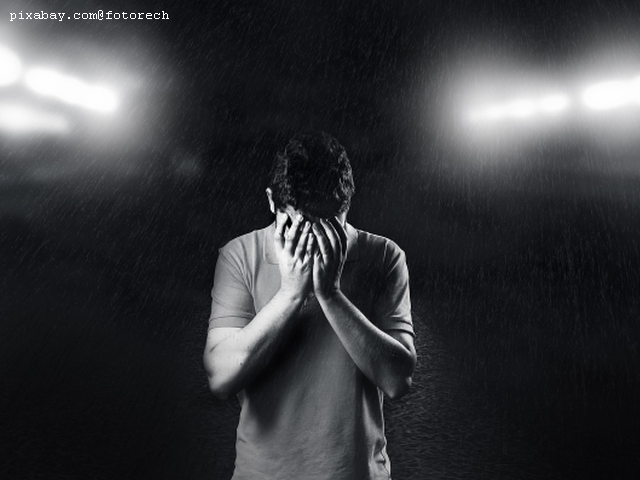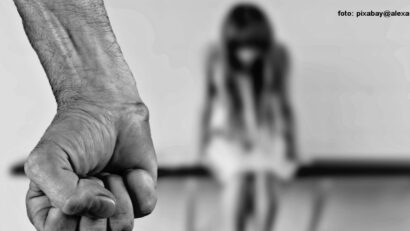Coping with depression at the time of the winter holidays
Happy holidays or the holiday blues ?

Luiza Moldovan, 06.12.2023, 14:00
Five percent of the globe population suffers from depression. Most likely, the percentage is much higher, since not everyone is officially diagnosed with depression. It is the conclusion put forward by the US Forbes magazine in 2023. Also, Forbes have come up with other very interesting data about this extremely silent mental condition, which is at once very dangerous. Also according to Forbes, it appears that depression affects human beings disproportionately…for instance, women, but also African-American and Latino communities are more prone to depression than other categories.
The World Health Organization has revealed that, around the world, 280 people live with depression. Depression seems to be a hereditary mental condition. A research study of the Stanford University has pointed to the fact that the risk is two or three times higher for people to develop depression, whose close relatives suffer from depression as well. Adult women are more prone to a depressive episode. In many respects, they bear the brunt of the family, such as child raising, taking care of the elderly, the day-to-day chores, career. All that prevents women from taking care of themselves. Even more worrying is that fact that the first episodes of depression can even occur as early as the age of 12.
During the winter holidays even the strongest people can have a mental breakdown, because of the social pressure they may be subject to. We sat down and spoke with psychotherapist Adina China-Birta about the seasonal depression. Here she is, teaching us how to identify and stave off its symptoms:
Adina China-Birta:
“The holiday depression or the so-called “holiday blues” is in no way uncommon, it is a problem anyone can be faced with, in a certain moment of their lives and which can take the shape of a state of emotional discomfort or sadness, likely to occur at the time of the holidays, such as Christmas, the New Years Eve, the winter holidays or post-holidays. Among the symptoms, we can have sadness, anxiety, stress or social isolation. The holiday depression can be caused by various factors, such as the stress that usually goes with the holiday preparations, social pressure, loneliness or the sad memories associated with this period of time. So what can we do to prevent the onset of the holiday depression? It would be really fine if we did not allow us to fall into the grip of the idea whereby the holidays must be perfect or we must be happy, constantly. The Christmas films depict a kind of reality that we may find truly hard to live in everyday life. Also, what we can to is to plan carefully as well. If we know a certain part of the holidays affects us, going shopping, for instance, we can plan that carefully and set some boundaries for ourselves, meaning we can plan a budget and a timeframe for the shopping and stay within the boundaries we have set for ourselves. That can bring in a feeling of satisfaction and can also help us find a deeper meaning in the holidays. There is also something else that can be a boost for us, we can also practice sports, physical exercise and take better care of ourselves. Doing physical activity on a regular basis can act as a boost for the morale that can trigger the release of the endorphins. We need to make sure that we can take care of ourselves, that we rest properly and have the required nutrition. “
However, why do some of us fall in depression, at the time of the holidays, which should be a time for relaxation and joy? How can we tell an episode of classical depression from the seasonal depression?
Psychotherapist Adina China-Birta once again:
“The holiday depression and the depression proper are two distinct concepts. The proper depression, also known as the major depression, is a more serious mental condition, characterized by the persistence of a string of significant symptoms, such as prolonged sadness, losing interest in doing usual activities, fluctuations in weight and in sleeping habits, excessive exhaustion, difficulties in focusing and even suicidal feelings. It is very little influenced by seasonal factors or specific events and affects the individual irrespective of the season. If you notice such symptoms in yourself or in someone whom you hold most dear, it is important that you take such signals seriously at the time of the holidays, and seek help. Seeing a professional in mental health, such as a psychiatrist or a psychologist can be crucial in somebodys bid to receive the required support and treatment. So, yes, it is possible for someone who does not suffer from depression to be faced with depression symptoms at the time of the holidays. The holidays can bring an extra amount of stress with them, social pressure, sad memories, loneliness, which can trigger or make depression symptoms worse, in the case of certain individuals. It is important for us to be able to admit that the holiday depression can affect anybody, that including those who usually do not suffer from a major depression. Also, it is essential for us to tell a temporary state of discomfort that usually goes with the time of the holidays from the major depression, which more often than not requires intervention for its management and treatment. “
Let us see what we can do to improve our state of mind and, maybe, who knows, event to learn how to enjoy the time of the holidays.
Adina China-Birta:
“If you suffer from seasonal depression, here are several pieces of advice that can help you. Start by respecting your emotional needs. Listen to your body and your mind. If you feel the need to rest or to have time for yourself, offer yourself such moments without feeling guilty about that. It is important to recognize and accept your feelings. It is okay not to feel happy all the time. Being able to understand and accept your emotions is the first step you can take for your own healing. Then you can plan outdoor activities. Even on cold days or mostly on cold days, the time you spend outside can provide fantastic benefits for your state of mind. Try to enjoy natural light as much as you can. Maintain a regular routine, which should include sleep, healthy food and physical exercise. Eat food which is rich in nutrients, such as fruit, vegetables, low protein food and whole-grain cereals. Regular physical activity can help you release the endorphins, improving your state of mind. It is very important for you to communicate. Talk to your friends and members of the family about what you feel. Sometimes, sharing your thoughts can bring comfort and support. Socialize, physically or online, with the people you like to communicate with. Write down the activities that bring you joy and try to integrate them into your daily routine. Whether we speak bout reading, listening to music, cooking or dancing, dedicate time for the activities you like. Whenever negative thoughts become overwhelming, you can use positive thinking or mindfulness techniques that can help you manage and overcome such thoughts. If your symptoms persist or if they get worse, it is important that you see a mental health consultant, a psychologist or a psychiatrist, they can support you in the management of the seasonal depression”.






























